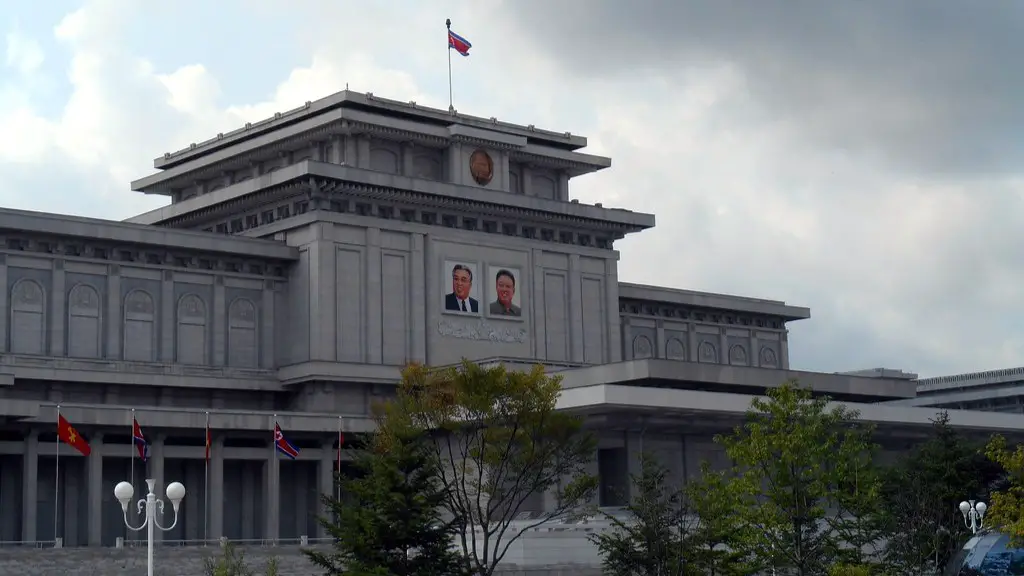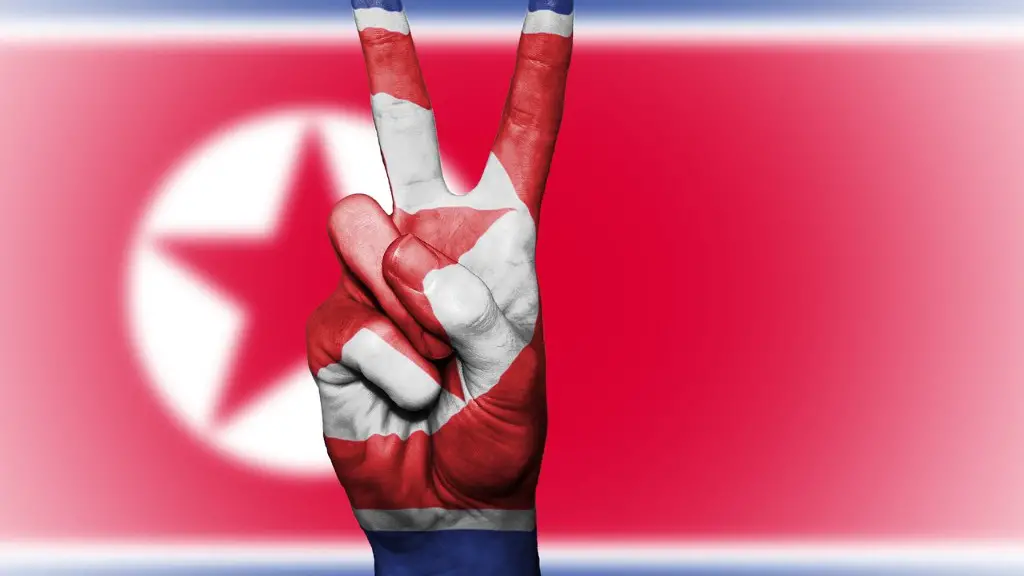China has had a unique relationship with North Korea, historically treating the isolated nation as a buffer between itself and US forces in South Korea. On the one hand, support from China is essential to North Korea’s survival; on the other, the North Korean regime’s provocative and erratic behaviour—which includes ongoing nuclear testing—has long been a source of tension between China and the US. In recent years, observers have noticed a tension between China and North Korea, especially as the US has become increasingly involved in the situation.
Analysts point to two major reasons for the tension between China and North Korea. Firstly, the rich amongst China’s business elite are no longer willing to risk their fortunes and reputations to invest in North Korea’s flagging economy due to the government’s oppressive activities. This has left North Korea increasingly isolated and dependent on China for support, something which China’s new leadership team is not keen to provide.
The second reason is geopolitical in nature. China’s leaders are trying to establish their country’s importance on the global stage and their policy towards North Korea has been an important part of this. They want the country to become a successful global player, and thus do not want the current North Korean regime to cause an international scandal or provoke a war. These concerns have been heightened by recent nuclear testing, which has further strained relations between the two countries.
China’s relationship with North Korea has been further complicated by US President Donald Trump’s ‘maximum pressure’ approach to the situation. The President has made Chinese assistance and involvement a key component of his strategy, and the Chinese have responded with their own series of increasingly tough statements and policies. While Beijing is committed to maintaining peace in the region and keeping North Korea’s nuclear ambitions in check, they are also weary of being infantilised by the US.
China has also been pushing North Korea to implement economic reforms as a condition of its continued support. They are no longer willing to provide aid without any apparent return, and have urged North Korea to open its economy and engage in globalisation. However, North Korean leader Kim Jong-un has been resistant to these calls, and this has placed strain on the relationship between the two nations.
All of these elements have caused some observers to conclude that China is getting increasingly tired of North Korea. Whether this is true remains to be seen, but the relationship between the two countries is definitely shifting. How that shift plays out could have a major impact on the international stage.
Concerns Around Chinese Involvement
As China has become increasingly involved in the North Korean situation, other countries have become increasingly concerned about what that involvement might mean. While many countries support efforts to limit North Korea’s nuclear ambitions, they are also wary of the country becoming too dependent on China. This concern is particularly pronounced in South Korea, which is wary of Chinese involvement in the North Korean economy given China’s history of human rights abuses.
Analysts are also concerned about the possibility of China using its economic leverage to shape the North Korean government’s policies in the future. Even if the Chinese government is not actively trying to do this, the risk of them using their position of power for political gain remains. It is for this reason that many countries are calling for increased transparency regarding China’s dealings with North Korea.
China has also been criticized for its lack of action in response to North Korea’s human rights abuses. These abuses have been well-documented in the past, but China has consistently refused to take any punitive measures against the North Korean regime. This has raised concerns that China is allowing North Korea to continue its abhorrent treatment of its people, a claim which the Chinese government has so far denied.
Finally, questions have also been raised about China’s motivations for increasing its involvement in the North Korean situation. Some suggest that Chinese leaders are using events with North Korea to distract attention from the country’s other domestic and international issues, such as its crackdown on democratic activists and its dispute with Taiwan. Whether this is true or not remains to be seen, but the speculation has caused concern among some observers.
Changing Interactions Between China and North Korea
In recent years, the interactions between China and North Korea have changed significantly. One clear indication of this is the fact that from 2017 to 2019 visits from China’s senior leaders to North Korea decreased by more than 75%. However, this decrease in high-level visits has been balanced by an increase in visits from middle and lower-level officials. This indicates that China is taking a more hands-off approach to North Korea, but is still actively engaging with the country.
The change in attitude towards North Korea is also visible in China’s policies towards the country. In the past, China has been accused of turning a blind eye to North Korea’s hostile, unauthorised activities—including nuclear tests—but in recent years they have been quick to condemn these activities. This indicates that China is taking a firmer stance against North Korea, and is working to ensure that the country’s actions do not undermine China’s foreign policy.
The change in interactions between China and North Korea is also evident in the public statements of both countries’ leaders. China’s leaders have become more critical of North Korea’s policies in recent years, and have reiterated their support for a denuclearised Korean peninsula. North Korea, on the other hand, has expressed frustration with China’s stance and its refusal to provide more economic aid.
The change in interactions between China and North Korea is also reflected in the current state of the relationship between the two countries. Even though both countries continue to maintain diplomatic relations and cooperate in various areas, tensions between the two remain high. This is due to China’s increased pressure on North Korea to change its policies, and to the US’s involvement in the situation.
Conclusion of China’s Changing Attitude Towards North Korea
The relationship between China and North Korea has changed significantly in recent years. On the one hand, China is pushing North Korea to implement economic reforms and take a firmer stance against nuclear testing. On the other hand, North Korea has become increasingly frustrated with China’s apparent refusal to provide more economic assistance. This has caused tension between the two countries, and has led many observers to conclude that China is getting increasingly tired of North Korea.
These changes in interactions between the two countries have led to concerns amongst other countries about what Chinese involvement in the North Korean situation might mean. They are worried about the potential for China to use its economic leverage to shape North Korea’s policies in the future, and have called for increased transparency regarding China’s dealings with North Korea. China has also been criticised for its lack of action in response to North Korea’s human rights abuses, and questions have been raised about its motivations for becoming more involved in the situation.
Comparison to South Korea’s Approach
In comparison to China, South Korea has taken a different approach to North Korea in recent years. While Beijing has been pushing for change and has expressed its support for a denuclearised Korean peninsula, South Korea has been pushing for increased engagement with the North. This has been reflected in the South Korean government’s policy of offering aid and economic incentives to North Korea in exchange for the country’s denuclearization.
South Korea’s new President Moon Jae-in has also played a key role in the North-South relationship. He has sought to foster closer ties between the two countries through a series of symbolic gestures. These include the sending of a high-level delegation to Pyongyang and arranging a historic summit between the two Koreas.
This approach appears to have been successful so far, with North Korea agreeing to disarmament talks and taking steps towards the denuclearization of the Korean peninsula. However, it remains to be seen whether this progress will continue in light of the recent tension between the US and North Korea.
Results of Negotiations between North Korea & the US
The relationship between China and North Korea is also likely to be impacted by negotiations between North Korea and the US. While there has been positive progress in recent months—including the signing of a joint statement between the two countries—the situation remains tenuous. Any further progress will depend on the continued cooperation of both the US and North Korea.
China has been keen to remain a part of the dialogue, with President Xi Jinping recently urging the US and North Korea to find a ‘common ground’. However, analysts have warned against China’s involvement in the talks, noting that the country’s motivations are likely to be more ‘self-serving’ rather than altruistic. This has caused concern amongst some observers, who fear that China might use its influence to shape the outcome of the negotiations.
It remains to be seen how the negotiations between the US and North Korea will play out, and how it will affect the relationship between China and North Korea. What is clear, however, is that China’s involvement in the situation is becoming increasingly important. Whether that involvement will result in the resolution of the conflict remains to be seen.
Projected Future of China-North Korea Relationship
The future of the relationship between China and North Korea is heavily dependent on the outcome of the US-North Korea negotiations. If negotiations are successful, then it is likely that China will remain an important partner for North Korea and seek to increase its influence on the country. However, if talks fail, then it is possible that North Korea could become increasingly isolated and dependent on China for support, something which China’s new leadership team is not keen on.
It is also possible that tensions between China and North Korea could increase due to differences of opinion on how to respond to the US-North Korea negotiations. While China is committed to maintaining peace in the region and keeping North Korea’s nuclear ambitions in check, it is also wary of being infantilised by the US. These tensions could potentially create further problems in the China-North Korea relationship in the future.
Finally, it is also likely that the international community will continue to watch China’s involvement in the North Korean situation closely. If China is seen to be using its position of power for political gain, then it could cause further tensions between China and other countries. This is a risk that all parties involved in the US-North Korea negotiations will have to consider going forward.





